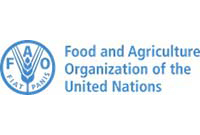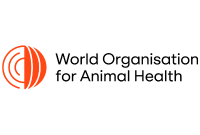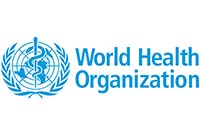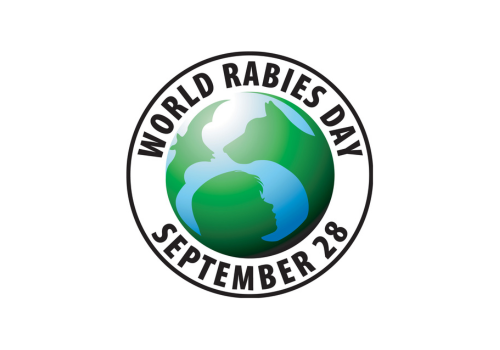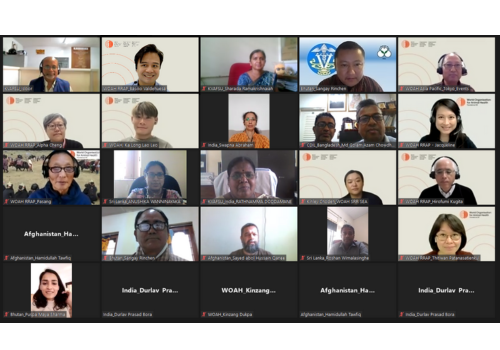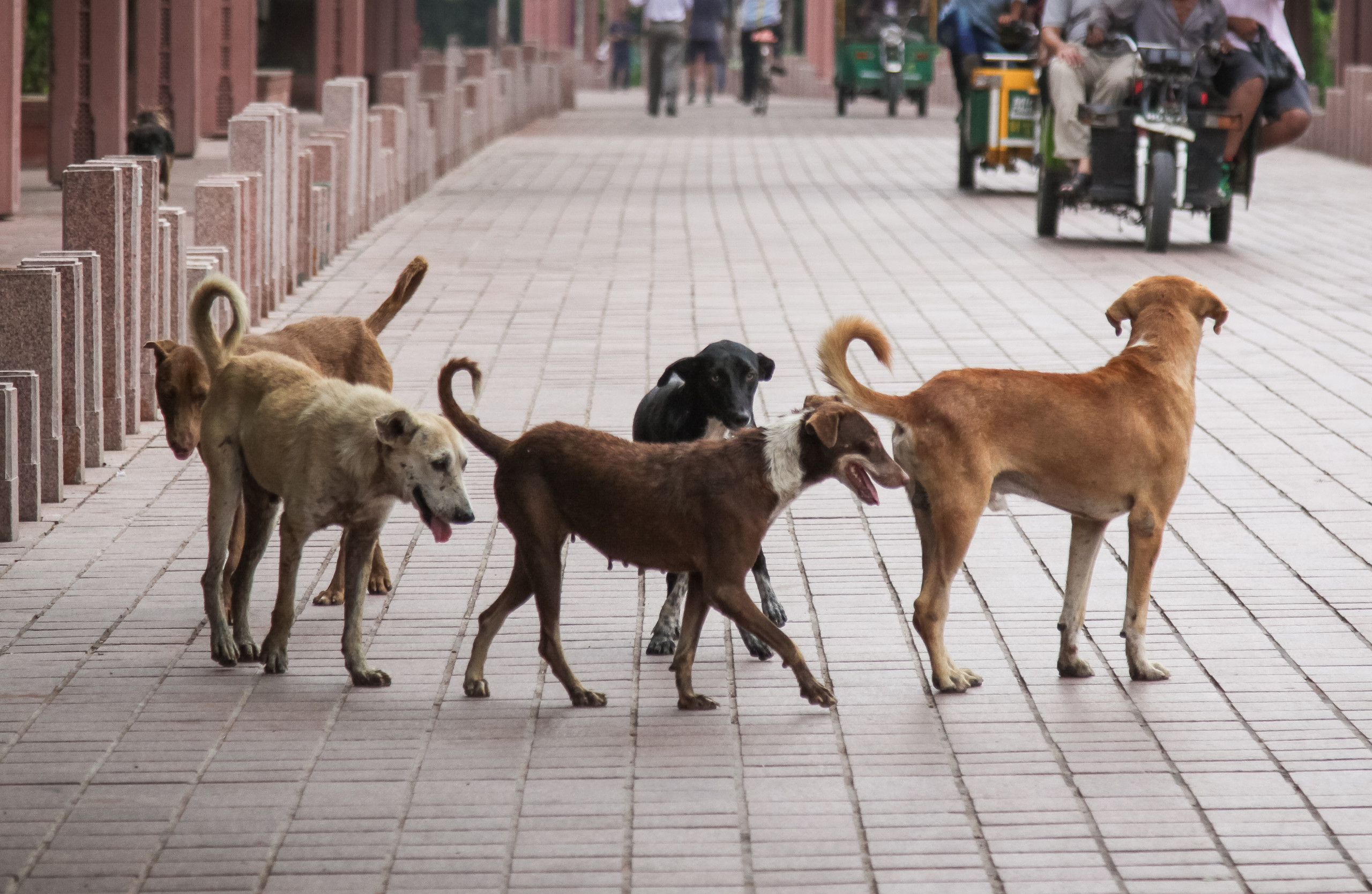GF-TADs
Food and Agriculture Organization of the United Nations
World Organisation for Animal Health
World Health Organization
Rabies is a neglected zoonotic disease. Most human deaths from rabies occur in Asia and Africa, caused by bites from rabid dogs. Mass vaccination of dogs in infected areas interrupts the infectious cycle is the method of choice to control rabies in both humans and dogs.
The World Organisation for Animal Health (WOAH, founded as OIE) provides science-based standards, guidelines and recommendations for the control of rabies in animals, diagnosis of rabies infection and production of high-quality veterinary vaccines.
Rabies is endemic in humans and animals in the Asia Pacific Region (AP Region), with dog-mediated rabies being the predominant source of disease. However, it is often under-diagnosed, under-reported and under-funded and is therefore considered to be a neglected disease. Over 95% of human rabies cases are associated with dog bites. Rabies control and subsequent elimination necessitate a multi-sectoral collaboration, using a One Health approach to stop disease transmission at its source.
Although rabies is a 100% preventable disease, it continues to kill tens of thousands of humans and animals in the AP Region. Thus it is crucial to continue to advocate for more awareness in rabies prevention and control. As many countries do not invest in rabies surveillance activities, rabies is often under-detected and under-reported, and therefore neglected while it continues to kill humans and animals.
As humans have close bonds with dogs, the threat of rabies transmission remains perpetual unless active surveillance and control measures are taken in dogs – the region’s primary animal reservoirs for rabies virus. Being a zoonotic disease that thrives depending on socio-cultural, economic, and human-led activities, it is essential to use a One Health approach in tackling the disease.
World Rabies Day (WRD), observed on 28 September every year, is a day dedicated to bringing focus back to rabies as a neglected zoonosis and committing collective actions to tackle this dreaded disease. The Regional Tripartite (FAO-WHO-WOAH) has been organising joint events during World Rabies Day (WRD) every year to highlight collaboration and One Health (OH) actions as key strategies for rabies prevention and control.
Every year, 28th September is World Rabies Day, which raises awareness and enhances prevention and control of rabies. International communities come together to promote the fight against the disease. It is a chance for all to join the global movement and organise or participate in a nearby event or available online.
(2023 Apr) Online launch of the South Asia Rabies Network (SA-RABNET).
Rabies is endemic in much of the SAARC South Asia sub-region, accounting for about 45% of the global burden of human rabies. WOAH initiated and has been managing capacity building measures such as regional and country-level rabies diagnosis training, in the sub-region for many years.
The South Asia Rabies Laboratory Network (SA-RABNET) was launched in April 2023, following calls for a platform to connect laboratories (National Lead Rabies Laboratories, or RLDLs) involved in the diagnosis of rabies in animals in the sub-region.
The network’s purpose is to strengthen the rabies diagnostic and surveillance capabilities of the RLDLs in South Asia. Network members agreed to meet virtually once every six months to discuss key progress and challenges in pursuit of rabies elimination from South Asia.
Below you may find recent activities by WOAH and Members supporting efforts against the disease, and Members’ National Action Plans against rabies. Further below, you will find activities in previous periods.
Youth against rabies: Regional dialogue on rabies elimination, 29 Sep 2025
Local leadership in Bali drives rabies control and prevention, 25 Sep 2025
Highlight: One Health for Dog-mediated Rabies Elimination in Asia, 28 Feb 2025
ASEAN Rabies Meeting, 24-26 Feb 2025
Rabies surveillance and mass dog vaccination in northern India, 30 Sep 2024
Rabies education programme in Himachal Pradesh, India, 29 Sep 2024
India: Kerala’s anti-rabies campaign, 28 Sep 2024
Timor-Leste: celebrating progress towards “Zero by 30”, 27 Sep 2024
News: Insights into Singapore’s Free-Roaming Dog Behaviour: Exploring Movement Patterns and home range, 23 Feb 2024
Protecting Communities: Indonesia’s Great effort to Combat Rabies, 7 Oct 2023
First Oral Rabies Vaccine for Dogs, 27 Mar 2023
News: Animal Rabies Diagnosis for South Asia – Sub-Regional Training Workshop, 18 – 21 Jan 2023
Controlling Rabies and Ending Human Rabies Deaths by 2030 in Vietnam, 7 Nov 2022
Mass dog vaccination: using the One Health approach to prevent rabies, 7 Oct 2022
Educating school children and raising awareness about rabies in Lao PDR, 6 Oct 2022
Controlling Rabies and Ending Human Rabies Deaths by 2030 in Bhutan, 30 Sep 2022
Promoting Oral Rabies Vaccines to Improve Vaccination of Free Roaming Dogs: A WOAH Initiative, 29 Sep 2022
Bangladesh: Laboratory Diagnosis of Rabies in Children and Foxes, 28 Sep 2022
Oral Rabies Vaccination: New hope of rabies elimination in Indonesia, 27 Sep 2022
Opening of Singapore’ s Animal Quarantine Centre: Guarding Against Rabies, 26 Sep 2022
Philippines’ dog-mediated rabies control programme endorsed by WOAH, 7 Jun 2021
Asia Pacific Rabies Meeting, 16-18 Jul 2024
Webinar: Rabies Control in the ASEAN, 29 Sep 2023
Tripartite Webinar on “Rabies: All for 1, One Health for All” in the Asia Pacific Region, 26 Sep 2023
ASEAN-WOAH Rabies Workshop in Bali, 2-4 May 2023
Sub-regional Training Workshop on Animal Rabies Diagnosis for South Asia, 18-21 Jan 2023
Regional Training of Trainers Workshop on Mass Dog Vaccination, 28 Nov 2022
Regional Virtual Training Workshop on Molecular Epidemiology Techniques (MET) for rabies, 2nd round, 24-25 Aug 2022
Virtual Workshop on Oral Rabies Vaccines (ORVs), 28 Feb 2022
Regional Virtual Training Workshop on Molecular Epidemiology Techniques (MET) for Rabies, 19-20 Oct 2021
Rabies Virtual Workshop in South-East Asia, 6-8 Jul 2021
Workshop “Preparing for and dealing with incursion of an infectious disease – rabies”, 22-24 Mar 2021
Members’ Actions to Accelerate Global Rabies Elimination “Zero-by-30”, 26 Nov 2020
For a complete listing of all our activities: Activities on rabies in Asia and the Pacific
One of the core activities to build a foundation for rabies control and elimination is preparation of effective and sustainable action plans. In this regard, WOAH would like to congratulate Members for developing such action plans and for their commitment to control dog rabies to support the global action plan. To facilitate information exchange and to monitor progress, the WOAH RRAP has created a library of Members’ action plans for rabies control and elimination. This page lists those provided by Members – some are for control and elimination of endemic rabies and some outline a response to introduction/re-introduction of the disease.
Members are encouraged to share their rabies action plans with WOAH. This list will be updated regularly.

